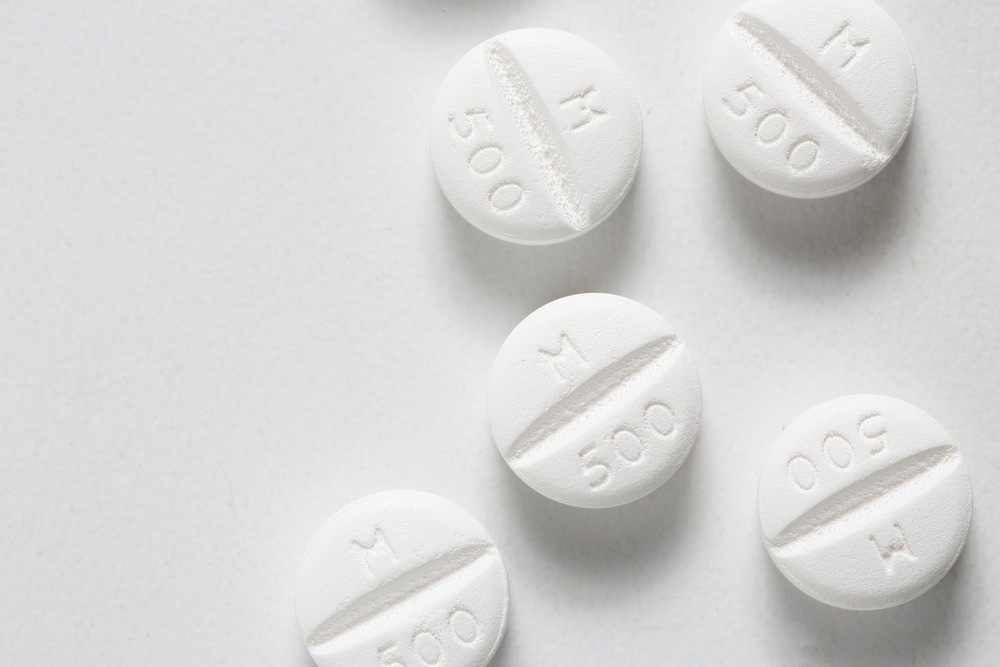The coronavirus disease 2019 (COVID-19), which is caused by infection with the severe acute respiratory syndrome coronavirus 2 (SARS-CoV-2), remains an urgent global public health crisis.
Throughout the pandemic, individuals with chronic conditions, such as diabetes, are often at an increased risk of severe COVID-19. In fact, several inflammatory markers have been observed in diabetic patients, thus suggesting that this disease could be a risk factor for the progression and prognosis of COVID-19.
 Study: Antidiabetic treatment and COVID-19 Outcomes: a population-based cohort study in Primary Health Care in Catalonia during the first wave of the pandemic. Image Credit: LeviMax / Shutterstock.com
Study: Antidiabetic treatment and COVID-19 Outcomes: a population-based cohort study in Primary Health Care in Catalonia during the first wave of the pandemic. Image Credit: LeviMax / Shutterstock.com
Background
Various mechanisms that can increase the severity and risk of COVID-19 include reduced CD4+ T-cells and the increased expression of the host angiotensin-2 converting enzyme (ACE2) receptor and interleukin 6 (IL-6). The interaction of dipeptidyl peptidase 4 (DPP4) can also promote the virulence of SARS-CoV-2, with inhibition of this interaction shown to reduce the COVID-19-associated inflammatory storm.
DPP4 inhibitors (iDPP4) are hypoglycaemic agents that are highly selective and can increase the bioavailability of the glucagon-like peptide-1 (GLP1), as well as have immunoregulatory and anti-inflammatory effects. Thus, iDPP4 has the potential to be effective in preventing fatal outcomes associated with COVID-19 and improving outcomes in diabetic patients.
Metformin, which is another antidiabetic drug, has been reported to possess anti-inflammatory activity. In fact, reduced mortality has been observed following treatment with metformin among high-risk diabetic COVID-19 patients.
Few other oral antidiabetic agents have been observed to bind to SARS-CoV-2 receptors and inhibit the transcription and replication of the virus. GLP1 analogs could also be used for the treatment of COVID-19 due to their anti-obesogenic, anti-inflammatory, and pulmonary protective effects.
Previous studies have indicated an association of higher mortality with poor control of blood glucose levels in COVID-19 patients with diabetes. However, no guidelines have been devised to specifically target the treatment of COVID-19 in diabetic patients.
A new Primary Care Diabetes study determines whether antidiabetic agents can reduce complications in COVID-19 patients with diabetes by assessing mortality rates and hospital admissions in Catalonia, Spain.
About the study
The current study included adult patients who were diagnosed with COVID-19 between March 2020 and June 30, 2020. Data was collected using the Information System for Research in Primary Care (SIDIAP), which comprises clinical information of about 5.8 million people from Catalonia, Spain.
Data on socio-demographic characteristics, long-term care facilities (LTCF), toxic habits, clinical parameters, date of hospital admission, laboratory tests, drug prescriptions, comorbidity, pharmacy invoice, COVID-19 diagnosis, and discharge were collected.
Confirmed cases included patients with a confirmed COVID-19 diagnostic report, whereas possible or unclear cases included those with a non-confirmed diagnosis but a record of COVID-19-related pneumonia, hospitalization, and/or death.
Patients were classified as being exposed to metformin or other antidiabetics if a prescription was issued six months before their COVID-19 diagnosis, along with a minimum duration of 30 days. Those who did not meet this criterion were classified as untreated.
The reference group comprised people who were exposed to metformin monotherapy. Other antidiabetic agents included insulin, iDPP4, sulfonylureas, GLP1, sodium-glucose co-transporter 2 inhibitors (iSGLT2), and other hypoglycemic agents.
Information on several variables was captured at baseline and included sex, body mass index (BMI), age, smoking habit, LTCF, glycated hemoglobin (HbA1c) measured until six months before the diagnosis of COVID-19, comorbidities, drug exposure, and years since diagnosis of type 2 diabetes.
The primary severity outcomes involving mortality and rate of hospital admission were compared between patients exposed to metformin and those not exposed to metformin but exposed to other antidiabetics.
Study findings
The study included a total of 31,006 people who were previously diagnosed with type 2 diabetes and infected with SARS-CoV-2. Among them, 21,131 received treatment with antidiabetic drugs, while 13,549 were exposed to metformin. The mean age of the patients was 71.5 years, with 50.9% being current smokers.
The most frequently reported comorbidities included obesity, hypertension, and respiratory diseases, while the most prescribed comedications included ACE inhibitors, non-steroidal anti-inflammatory drugs, and psychotropic drugs.
About 57% of antidiabetic drug users received metformin alone, while the most used pharmacological groups included iDPP4, insulin, and metformin. Hospitalization was reported in 5,096 patients, with death reported in 4,678 patients.
Patients treated with insulin alone, insulin in combination with metformin, or iDPP4 alone were more likely to experience severe outcomes as compared to metformin monotherapy. Less common combinations that were also associated with a higher risk of severe outcomes included metformin, sulfonylureas, iDPP4, or insulin, along with other hypoglycaemic drugs.
Patients receiving insulin or insulin with metformin were also at a higher risk of mortality as compared to metformin monotherapy. Other less common combinations that showed a higher risk of mortality included insulin with GLP1, as well as insulin, metformin, and sulfonylurea.
Conclusions
Diabetic patients infected with SARS-CoV-2, when treated with metformin in monotherapy, had a lower risk of hospitalization and death than with other antidiabetic treatments. Further research is needed to determine if better outcomes are associated with metabolic controls or other interventions that are applied during hospitalizations.
Limitations
The current study did not determine whether only adherent patients could give rise to the same or different results. Furthermore, the study results were associated with a greater degree of metabolic control than antidiabetic therapy.
Additionally, the COVID-19 diagnosis was not completely reliable. A final limitation was that the study was unable to capture interventions or treatments administered during hospital admission, ventilation, and intensive care unit admission.